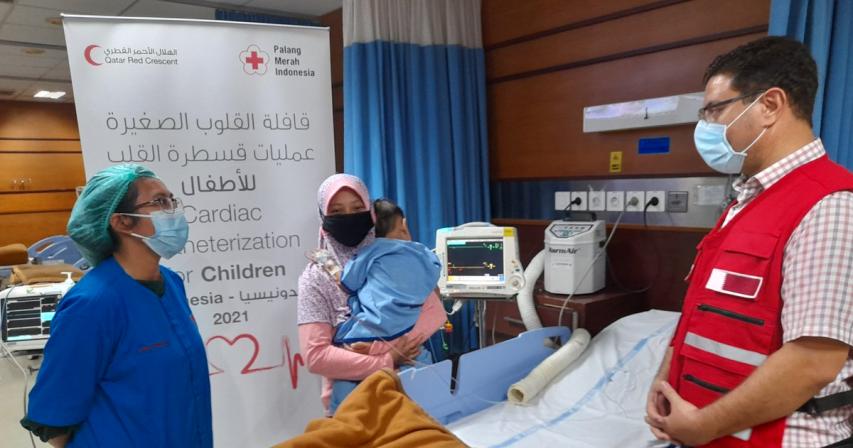QRCS Concludes Little Hearts Project in Indonesia
- 4 years ago

Qatar Red Crescent Societys (QRCS) has concluded its Little Hearts project in Indonesia, which was conducted in cooperation with the Indonesian Red Cross Society (PMI) and Indonesias Ministry of Health (MOH).
Hosted by the National Cardiac Center Harapan Kita (NCCHK) in Jakarta, the project reached out to a total of 40 poor children with congenital heart defects, at an overall cost of USD 105,591.
Over five months, ventricular septal defect (VSD) and patent ductus arteriosus (PDA) closure catheterizations were performed by a local medical team of 16 specialized doctors and consultants of pediatric cardiology, diagnostic non-invasive cardiology, and anesthesia.
The project was widely welcomed at the governmental and public levels for achieving a 100 percent success rate. It also gave the participating doctors the expertise to perform such interventions. Gifts and toys were distributed to the recovering children, as a form of psychological support to encourage them to get well soon.
Due to the COVID-19 pandemic, all the preventive measures were strictly observed. The NCCHK prolonged the period of medical screening to avoid crowds, re-disinfected the hospitals clinics and departments, and conducted swab tests for both the patients and health workers to ensure reduced COVID-19 risks.
With nine out of 1,000 born-alive infants having congenital heart diseases (CHD), which means 40,000 in total all over the country, there is currently a long queuing time for CHD intervention, due to lack of social funds to cover the needs.
The Little Hearts project in Indonesia is part of the Medical Convoys program, launched by QRCS in 2002. Done in partnership with the Ministry of Public Health (MOPH), Hamad Medical Corporation (HMC), and Sidra Medicine, it involves the deployment of specialized medical delegations to host countries, in order to treat poor patients who cannot afford the costs of surgeries in various medical specialties.
Over the past three years only, the program treated around 14,000 patients in eight countries. (QNA)
Comments